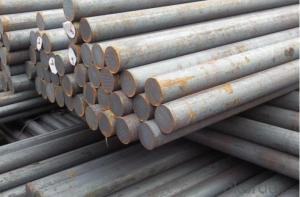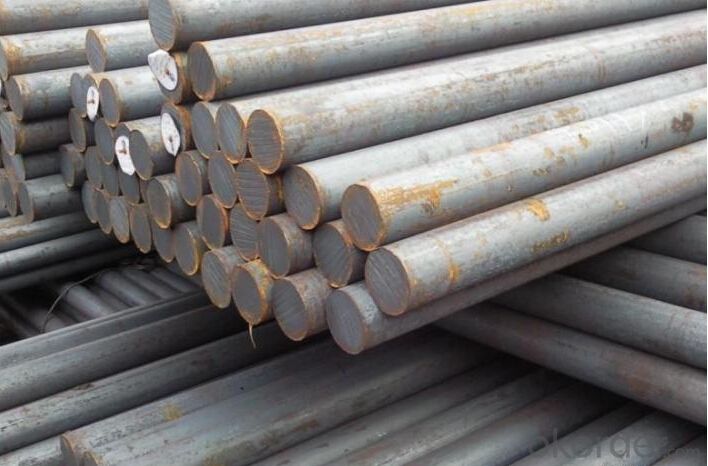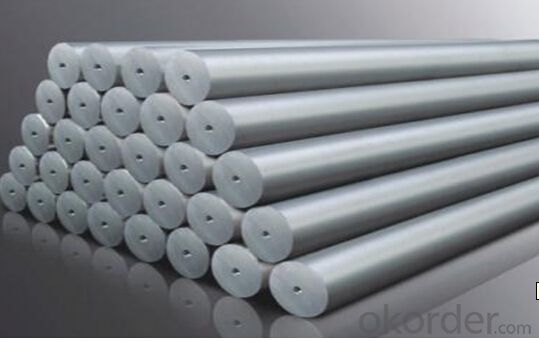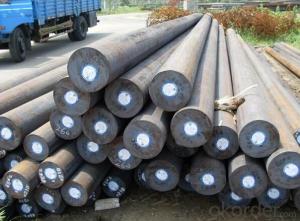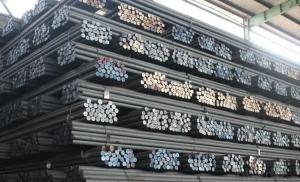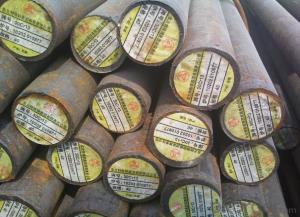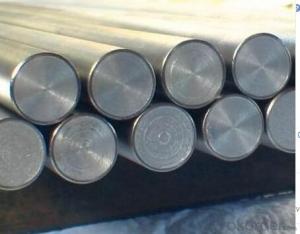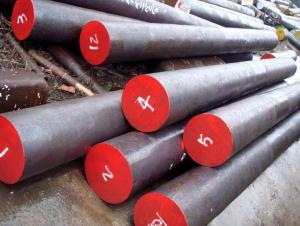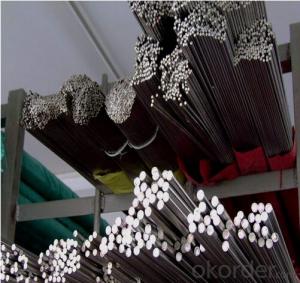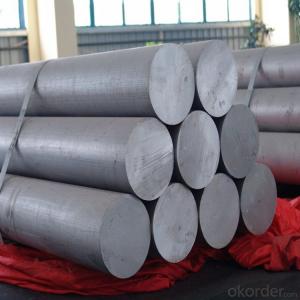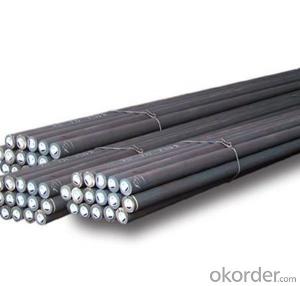GCr15 Special Steel with High Heavy and High Quality
- Loading Port:
- Shanghai
- Payment Terms:
- TT OR LC
- Min Order Qty:
- 3 m.t.
- Supply Capability:
- 10000 m.t./month
OKorder Service Pledge
OKorder Financial Service
You Might Also Like
Specification
Products Specifications:
We have the CNC computer spring machine, non-cam and non-rocker, independent control by multiple servo motor, which can produce the biggest diameter spring. Fast production, precision positioning, steady operation. | |
Wire diameter: | 0.08mm-10mm. Size and style are made by drawings. |
Materials: | adopt the domestic and imported swc, sus, swp, mild steel wire, manganese steel wire, phosphorus copper wire, nickel-plated wire, zinc-plated wire, tin-plated copper wire, nickel-plated steel wire, non-magnetic stainless steel wire, heat-resistant steel wire, duplex stainless steel wire(corrosion resistant and heat resistant steel wire), bronze, copper, phosphorus copper, beryllium copper. Alloy steel has 60Si2MNA, 60Si2CRVA, 55CrSi. |
Surface treatment: | plate gold, silver, white, red yellow, blue, green, purple, black, etc., salt spray test more than 100 H. Appearance beautiful and bright. |
Application: | electronics, electrical appliances, toys, locks, stationery, furniture, washing machines, vacuum cleaners, lamps and lanterns, stroller, bicycle, gift, handicraft, gifts, cameras, printers, office equipment, precision equipment, all kinds of transportation, car accessories, sports equipment, switches, sockets, water heater, calculator, watches, ignition, mouse, motor, mobile phone, mementoes, fan, video DVD, etc |
Product Applications:
High Heavy and High Quality Bearing Steel GCr15 are ideal for structural applications and are widely used in the construction of buildings and bridges, and the manufacturing, petrochemical, and transportation industries.
Chemical Composition:
Grade | AISI 52100, ASTM E52100, DIN 1.3505,JIS SUJ2, GCr15 |
| Length: 2000-13000mm or as required |
Shape | Round Bar |
Type | Alloy Steel Bar |
Delivery Condition | Black Surface |
Material | Bearing Steel |
Technique | Hot Rolled |
Product Advantages:
OKorder's High Heavy and High Quality Bearing Steel GCr15 are durable, strong, and resist corrosion.
Main Product Features:
· Premium quality
· Prompt delivery & seaworthy packing (30 days after receiving deposit)
· Corrosion resistance
· Can be recycled and reused
· Mill test certification
· Professional Service
· Competitive pricing
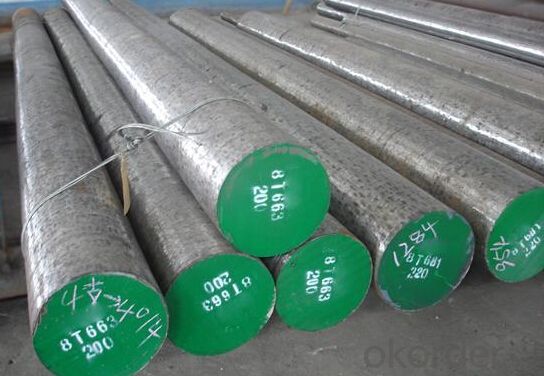
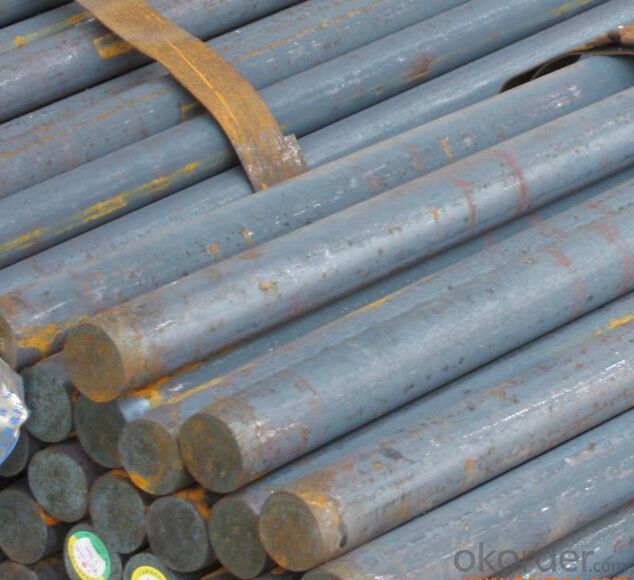
- Q: How does special steel perform in terms of creep resistance?
- Special steel performs exceptionally well in terms of creep resistance. It is specifically designed to withstand high temperatures and long-term exposure to stress, making it highly resistant to deformation or failure under such conditions. Its unique composition and heat treatment processes enhance its ability to maintain structural integrity, making it a preferred choice for applications where creep resistance is crucial, such as in power plants, aerospace components, and high-temperature industrial environments.
- Q: What are the main applications of special steel in the mining exploration?
- Special steel has various crucial applications in mining exploration. One main application is in the construction of drilling equipment, such as drill bits and drill rods, which require high strength and durability to withstand the challenging conditions of drilling in hard rock formations. Another important use of special steel in mining exploration is in the manufacturing of conveyor belts and other material handling systems, which need to be resistant to abrasion and corrosion. Additionally, special steel is employed for the fabrication of mining machinery components like gears, shafts, and valves, ensuring reliable performance and longevity under extreme operating conditions.
- Q: What are the different surface finishing techniques used for special steel?
- Some of the different surface finishing techniques used for special steel include electroplating, powder coating, galvanizing, passivation, and mirror polishing.
- Q: What are the different heat treatment furnaces used for special steel?
- Different heat treatment furnaces used for special steel include annealing furnaces, tempering furnaces, hardening furnaces, and quenching furnaces.
- Q: How does electrical steel minimize energy losses in electrical devices?
- Electrical steel minimizes energy losses in electrical devices through its unique magnetic properties and composition. It is specifically designed to have low electrical conductivity and high magnetic permeability, which reduces eddy current losses and hysteresis losses. These losses occur due to the alternating magnetic fields generated in electrical devices, such as transformers and motors. By using electrical steel, these losses are minimized, resulting in more efficient energy transfer and reduced energy wastage.
- Q: Can special steel be used in cryogenic applications?
- Indeed, cryogenic applications can utilize special steel. In particular, austenitic stainless steels like 304 or 316 are frequently employed in cryogenic settings because of their remarkable mechanical attributes and ability to withstand low temperatures. These steels maintain their strength, toughness, and ductility even in exceedingly cold environments, rendering them suitable for cryogenic use. Furthermore, special steels also exhibit commendable resistance to corrosion and thermal expansion, which are crucial considerations in cryogenic applications. In summary, special steel alloys possess a distinctive combination of properties that make them highly suitable for withstanding and functioning in extremely frigid conditions.
- Q: How does special steel contribute to the safety of infrastructure?
- Special steel plays a crucial role in enhancing the safety of infrastructure in various ways. Firstly, it offers exceptional strength and durability, allowing for the construction of robust and resilient structures. Whether it is used in bridges, buildings, or tunnels, special steel provides the necessary structural integrity to withstand extreme loads, such as heavy traffic, strong winds, seismic activities, or even potential terrorist attacks. Moreover, special steel possesses excellent corrosion resistance properties, making it suitable for infrastructure projects exposed to harsh environmental conditions. By preventing rust and decay, it extends the lifespan of structures and reduces the need for costly maintenance and repairs. This is especially important in coastal areas, where infrastructure is subjected to the corrosive effects of saltwater. In addition to its strength and corrosion resistance, special steel also offers exceptional fire resistance. It has a high melting point, which allows it to maintain its structural integrity under extreme temperatures. This characteristic is critical for infrastructure safety, as it provides additional time for evacuation and emergency response in case of a fire. Furthermore, special steel can contribute to the safety of infrastructure by enabling innovative design solutions. Its versatility allows for the creation of complex and efficient structures, such as long-span bridges or skyscrapers. These designs often incorporate special steel components, such as high-strength beams or columns, which enhance the overall stability and safety of the infrastructure. Overall, special steel's exceptional strength, corrosion resistance, fire resistance, and design flexibility make it an essential material for ensuring the safety and reliability of infrastructure. By utilizing special steel in construction projects, engineers and architects can create structures that can withstand various challenges, ultimately protecting the lives and well-being of the people who utilize them.
- Q: What are the different defense grades of special steel?
- Enhanced properties are possessed by special steel, which is a distinct category of steel that is specifically designed. These properties include increased strength, durability, and resistance to various environmental factors. In the realm of defense applications, special steel is frequently utilized to produce armor and protective components for military vehicles, aircraft, and naval vessels. The defense grades of special steel are classified based on their specific characteristics and performance levels. One of the most commonly utilized defense grades of special steel is referred to as ballistic steel. Ballistic steel is engineered to offer exceptional resistance against ballistic threats, which encompass bullets and shrapnel. It possesses high tensile strength and hardness, which enables it to endure the impact and penetration of projectiles. Several grades of ballistic steel exist, such as MIL-A-46100, MIL-A-12560, and AR500, each providing varying levels of protection against different types of ammunition. Another defense grade of special steel is known as blast-resistant steel. This form of steel is designed to withstand explosions and minimize the damage caused by shockwaves, fragmentation, and heat. It is commonly employed in the construction of blast-resistant walls, doors, and windows for military bases, embassies, and critical infrastructure facilities. Blast-resistant steel grades are classified based on their capacity to withstand different levels of explosive forces, with higher grades offering greater protection. Furthermore, specialized grades of special steel are employed for anti-vehicle applications. These grades, such as Armox and Ramor, are engineered to resist the impact of heavy-caliber projectiles and explosive devices, making them suitable for the production of armored vehicles and personnel carriers. They possess a combination of high hardness, toughness, and energy absorption properties, ensuring the safety of military personnel on the battlefield. In conclusion, the defense grades of special steel are varied and tailored to meet the specific requirements of diverse defense applications. They provide essential protection and ensure the safety of military personnel and equipment in challenging and hostile environments. The appropriate grade is chosen based on the nature of the threat, the level of protection required, and the specific design and performance criteria of the defense application.
- Q: What industries rely on special steel?
- Several industries rely on special steel, including automotive, aerospace, construction, energy, and manufacturing. Special steel is known for its exceptional strength, durability, and resistance to corrosion, making it an essential material in these sectors. It is used for various applications such as structural components, machinery parts, tools, pipelines, and turbines, among others.
- Q: Can special steel be used in the pharmaceutical manufacturing industry?
- No, special steel is not typically used in the pharmaceutical manufacturing industry. The industry requires specific materials, such as stainless steel, that meet strict regulatory requirements for cleanliness, corrosion resistance, and compatibility with pharmaceutical products.
Send your message to us
GCr15 Special Steel with High Heavy and High Quality
- Loading Port:
- Shanghai
- Payment Terms:
- TT OR LC
- Min Order Qty:
- 3 m.t.
- Supply Capability:
- 10000 m.t./month
OKorder Service Pledge
OKorder Financial Service
Similar products
Hot products
Hot Searches
Related keywords
